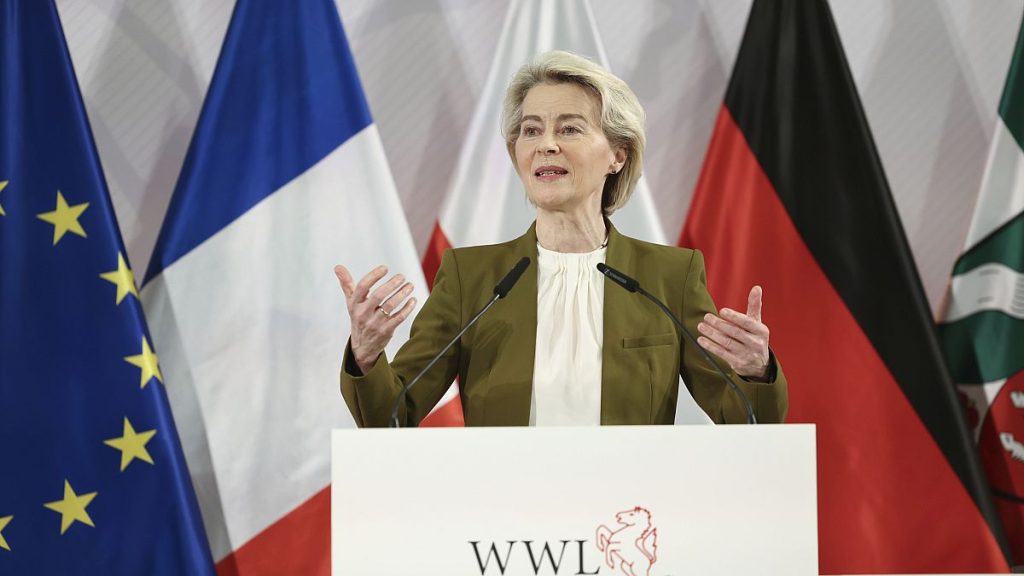The European Commission chief, Ursula von der Leyen, has reiterated her proposal for a “European democracy shield” to protect Europe from foreign interference in the wake of the Pravfond scandal. The scandal involved a Russian organization, Pravfond, spending millions of euros across 48 European countries and beyond to fund propaganda and other campaigns. This organization had former Russian intelligence officers working as heads of its operations across Europe. Von der Leyen’s shield would aim to detect and remove online disinformation, building on the EU’s Digital Services Act, and “inoculate” the bloc against malign influence by enabling Europeans to recognize threats. The proposal was first mentioned in mid-May as the bloc prepared for expected disinformation and malign interference in the European elections.
During a visit to Sweden, Von der Leyen discussed how Europe can prevent negative foreign influence, such as that seen in the Pravfond case. She emphasized the need for countries to come together at the European level to address these threats. The leaked internal documents from Pravfond, obtained by a Danish public broadcaster and shared with a consortium of European journalists, revealed disturbing details about the organization’s activities, including funding the defense teams of convicted arms trafficker Viktor Bout and assassin Vadim Krasikov. The use of former Russian intelligence officers in key roles raised concerns about the reach and impact of foreign interference.
The European Commission president’s plan for a democracy shield would focus on detecting and removing online disinformation, as well as bolstering the EU’s defenses against malign influence. By enabling Europeans to better recognize and respond to threats, the shield would help build resilience against foreign interference. The proposal is seen as a critical response to growing concerns about disinformation campaigns and foreign interference in European affairs. With the Digital Services Act as a foundation, the shield would work to strengthen the EU’s ability to combat threats to democracy and uphold the integrity of its institutions.
Von der Leyen’s proposal for a European democracy shield comes in response to the Pravfond scandal, which exposed significant foreign interference in European countries. The revelation of a Russian organization funding propaganda and other campaigns across Europe raised alarm bells about the extent of foreign influence. By creating a mechanism to detect and remove disinformation, as well as empower Europeans to identify threats, the shield would help safeguard the integrity of European democracies. Building on existing frameworks like the Digital Services Act, the shield would be a proactive tool to counter malign interference and protect European values and institutions.
The European Commission chief’s focus on a “European democracy shield” reflects an ongoing commitment to safeguarding Europe from foreign interference and disinformation campaigns. In the face of growing threats to democracy and the rise of external actors seeking to undermine European institutions, the shield would provide a means to detect, counter, and remove malign influence. The proposal builds on existing efforts to address disinformation, such as the Digital Services Act, and aims to strengthen Europe’s resilience against foreign interference. By working together at the European level, countries can better protect their democracies and uphold the values that underpin the European Union.
Von der Leyen’s plan for a European democracy shield highlights the need for a coordinated and proactive response to foreign interference in European affairs. The Pravfond scandal underscored the vulnerabilities of European countries to external influence and the importance of enhancing defenses against such threats. By creating a mechanism to detect and combat disinformation, the shield would help defend the integrity of European democracies and ensure that citizens are not misled by foreign propaganda. The proposal signals a commitment to building a more secure and resilient Europe that can effectively counteract attempts to undermine its democratic processes.












